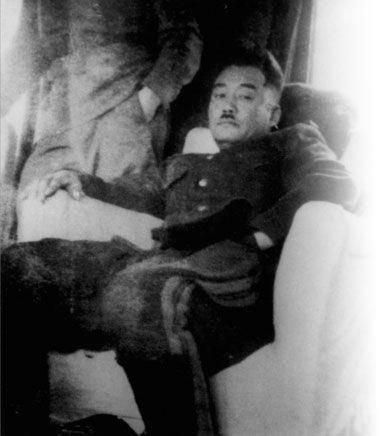


 |
|
Wu Ting [File photo] |
Wu Ting, an extraordinary artillery commander
Wu Ting, also known as Jin Wuting (Kim Mu Jong) was considered the founder of the artillery forces of the Red Army. He led an artillery battalion and showed outstanding military exploits during the Long March.
Wu was born in 1905 in Korea and came to China when he was 18 years old.
In 1934, Wu was appointed commander of the artillery battalion of the Third Corps of the Red Army. Afterwards, he and his troops fought bravely to protect the CPC central committee, and played vital roles in a series of victories.
In August of 1935, Peng Dehuai, chief commander of the Third Corps, was ordered to compile a new codebook after contact between the central revolutionary military committee and all the other corps was interrupted. They could only reach the Fourth Front Army led by Zhang Guotao, a Party leader who later defected to the KMT.
To protect the Party leaders, Peng sent Wu on the mission to find the First Corps.
With the new codebook, a wireless set and a compass, Wu successfully reached the First Corps in E'jie Village, Gansu Province.
On the same day Wu delivered the codebook to the First Corps, Zhang Guotao ordered his troops to move southward and start an inner party struggle.
After receiving the message, Mao decisively led the Third Corps and central military committee to E'jie to meet the First Corps, foiling Zhang's plot to usurp the top leadership of the CPC and the Red Army.
In 1937, Wu was assigned to reorganize the artillery forces of the Eighth Route Army and became the commander of the first artillery regiment of the army.
After the Chinese people defeated the Japanese invaders, Wu returned to his motherland. He worked as a member of the North Korea Temporary People's Committee, Second Secretary of the Workers' Party of Korea and Commander of the Second Corps of the Korean People's Army.
In July 1951, Wu passed away in Pyongyang. He spent 22 years in China.
